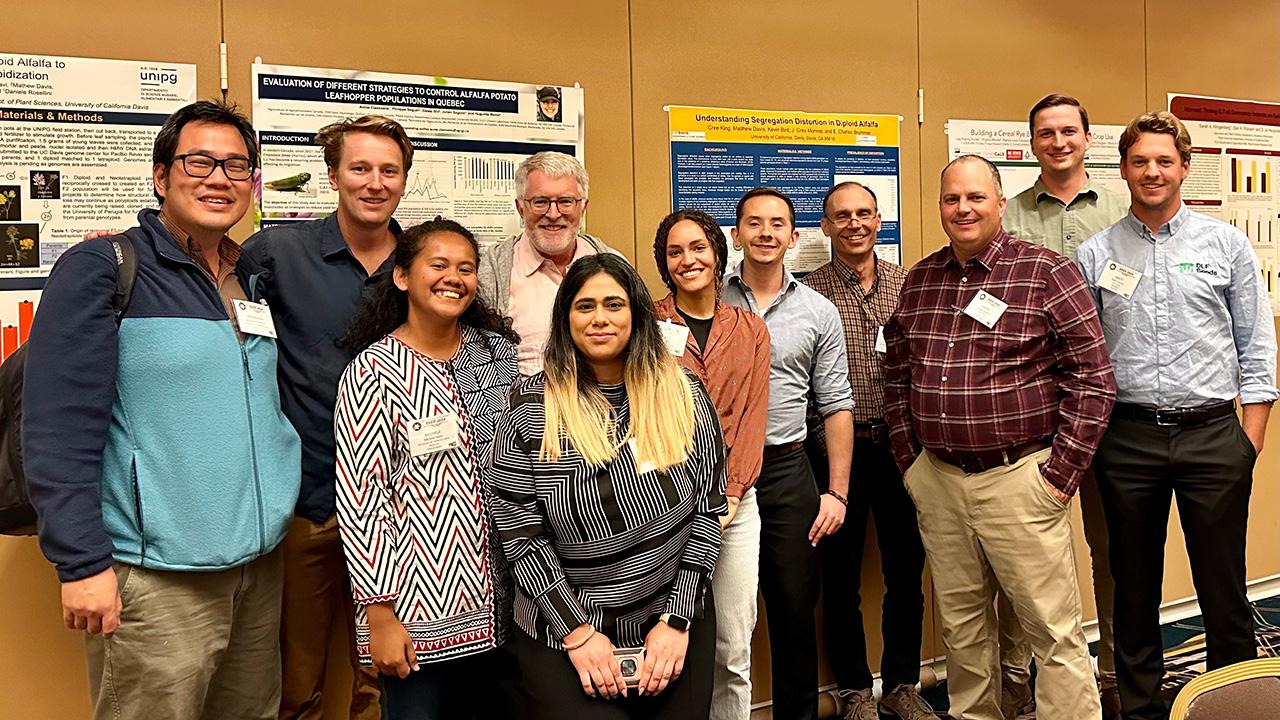
“Redesign” alfalfa? Brummer urges just that
Students, collaborators offer hope for better crops at North American Alfalfa Improvement Conference
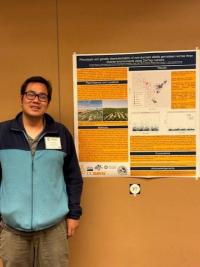
Alfalfa expert Charlie Brummer posed a vexing question to attendees at a recent conference: Why do alfalfa yields continue to be flat, while other grain crops have seen increases over the past 40 years?
Brummer and other researchers asked tough questions, but also offered pathways for meeting challenges during a recent meeting of the North American Alfalfa Improvement Conference.
And, the conference highlighted student research from across North America, including four students from the UC Davis Department of Plant Sciences.
Brummer: Take a new tack, after decades of flat yield
At UC Davis, scientists in the alfalfa breeding program are trying new ways to increase yield, Brummer, a professor in the department, told conference attendees. They’re testing experimental varieties in dense plots reflecting production conditions on farms, predicting yield with drones and using genomic tools to choose the best plant types without needing years of field data. These and more changes could boost how quickly alfalfa traits can be improved, making selections for new varieties more accurate and faster.
Breeders do develop experimental alfalfa varieties that show promise in test plots. But on-farm yield, as assessed by the United States Department of Agriculture, shows that the promise withers and yield remains flat.
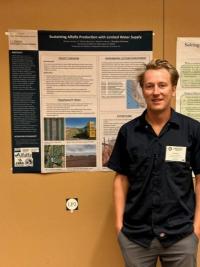
“Phenotypic selection has been singularly ineffective at improving yield in the past,” Brummer wrote. “Perhaps the alfalfa community needs to think about redesigning the alfalfa plant from first principles, in order to realize yield gains that have otherwise been hard to obtain.
"Twenty years ago, I would have scoffed at this idea,“ Brummer added. "Today, in the face of a further 20-year yield plateau, it seems like an idea whose time has come."
Janssen: Growing alfalfa with less water
Master’s student Charles Janssen presented his work to develop, test and implement improved alfalfa varieties adapted to a future with less water.
Researchers are testing commercial and experimental varieties of alfalfa in California and Utah under varying levels of irrigation: full and deficit, to mimic likely declines in water due to climate warming. They are studying how these varieties produce forage using less water in Davis and El Centro, Calif., and plan similar trials in Utah, Janssen explained. They want to see whether selective breeding can improve alfalfa's ability to thrive with less water. They'll also identify which types grow best with full or limited irrigation. Data on yield, soil moisture and water use will guide economic assessments.
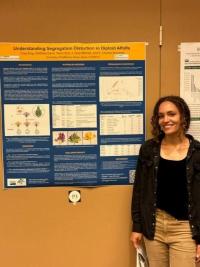
Brummer is Janssen’s principal investigator on the project. The research included Dan Putnam, a professor emeritus of Cooperative Extension in the department, Ali Montazar of UC Cooperative Extension and Matt Yost at Utah State University.
Faculty with national reach
The North American Alfalfa Improvement Conference was held June 24-26 in Pasco, Wash. Janssen was one of 10 attendees with links to Brummer’s lab, including current and former students at UC Davis and elsewhere. They presented on various aspects of alfalfa breeding, genetics and genomics.
“One of the NIFA program directors who was there suggested they rename the conference the ‘Charlie Brummer conference,’” Brummer joked afterwards. “Needless to say, it was a proud moment for me.”
Brummer also is director of the UC Davis Plant Breeding Center.
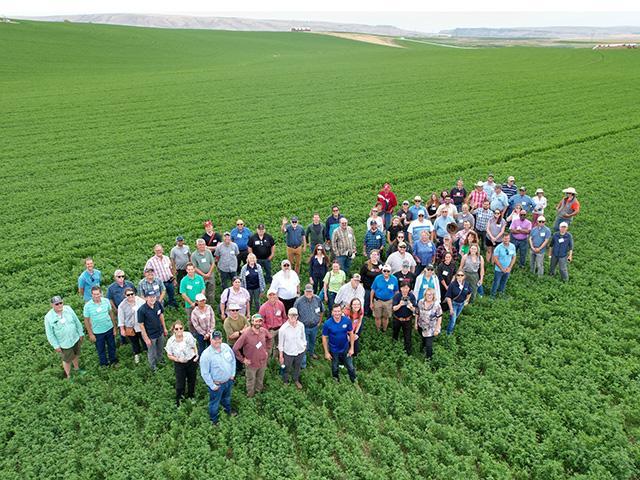
Related links
Abstracts of the talks presented at the conference.
Media Resources
- Trina Kleist, UC Davis Department of Plant Sciences, tkleist@ucdavis.edu, (530) 754-6148 or (530) 601-6846
